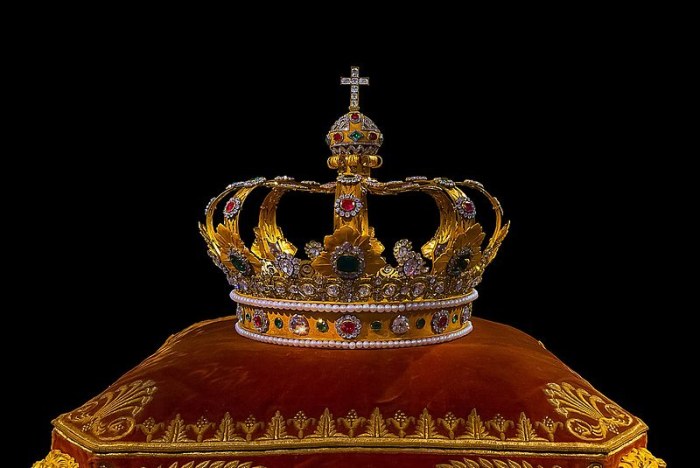Alexandra Rucinski is a proud Democratic activist in southeast Iowa, a mother, and a feminist writer. -promoted by Laura Belin
There’s an image I vividly remember seeing shared on Facebook in 2016: a drawing of Bernie Sanders cheerfully leading his revolution down a path. On the side, Hillary Clinton is hoisted up on a golden throne with a crown on her head. Her arms are crossed; she’s annoyed they are in the way of what is clearly her coronation, the anointed one.
At the time, I didn’t see the offensive, sexist nature of the image. But times have changed, and I’m a much different woman than I was then.
Lately I’ve been seeing progressive men refer to powerful women, including presidential candidate and U.S. Senator Kamala Harris of California, as a queen, using a tone meant to be degrading.
It’s important to point out what is sexist and misogynistic about calling a female candidate a queen. Although the word sounds positive on the surface, it is anything but. Queen in this context implies a woman did not earn her power or her place. It’s a dog whistle for saying she was given something she did not deserve.
Historically, queens were often born into their roles. They also married into power, which reflects the way women in politics are still defined by the men they have relationships with, instead of on the merit of their own accomplishments.
When a person–usually a man–uses the word “queen” or invokes that image to describe a woman in politics, he is letting it be known that he thinks this woman didn’t deserve her standing. It’s a perfect way to cut down a woman without having the guts to say what he really means. It is cowardly, and it is cruel. It discredits and disrespects the incredible work women in American politics do to represent their states and this county.
Women are not crowned into office. Women are not anointed to power. Women work their way into office, and they do it in an environment that discredits them solely on their gender at every turn. They fight for their place at the table and especially their place at the head of the table.
Remember that the next time you see a man call a powerful, ambitious woman a queen. Then have the courage, not unlike the real warrior queens in history, to confront this language and call out this repulsive behavior. Women in Iowa deserve better, and American women deserve better than having these tactics used against us.
Have courage and don’t allow people to abuse women in this way, even if you don’t like or agree with that particular female candidate. That is how we begin to combat misogyny. Because more women are running for president than ever before in U.S. history, I feel it’s my responsibility to speak out.
Top image: Crown Kings Bavaria Munich, by Jebulon via Wikimedia Commons.


1 Comment
Queens
With respect to whether the use of the word, “Queen,” in reference to a woman in a position of authority, is degrading, I would caution Alexandra Rucinski that there is an element she may not have considered. Specifically, in the Black community, the term is used, among women, and men, about women. One might consider, for example, Bob Dylan’s back-up singer, the late Queen Clydie King. Or, more well-known in recent years, Queen Latifah.
Senator Harris, unlike Hillary Clinton, is a Black woman. Perhaps before drawing any parallels, let alone conclusions about what the title, Queen, connotes relative to “women,” the author should ask what it means to the Senator and to women of color. My own experience is, it is a title of respect. Think, Aretha Franklin, the Queen of Soul.
I am not sure the liberal mom, self-annointed, “feminist” from southeast Iowa had the Black female perspective in mind when she contributed this post. It must always be considered. And, my goodness, this is Black History Month, and a female Black candidate being discussed.
A common source of consternation among women of color is that White women create their message for them, and women of color find their doing so abrasive, condescending and entitled.
Bill from White Plains Sat 2 Feb 12:53 PM